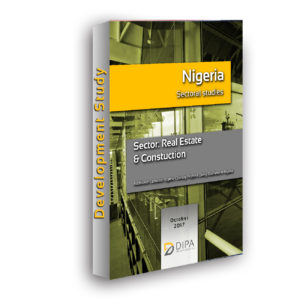 Nigeria is located at the extreme inner corner of the Gulf of Guinea on the west coast of Africa and has a tropical climate with variable rainy and dry seasons, depending on location.
Nigeria is located at the extreme inner corner of the Gulf of Guinea on the west coast of Africa and has a tropical climate with variable rainy and dry seasons, depending on location.
Nigeria, commonly known as the giant of Africa with more than 180 million people is the most populous country in Africa. With a democratic presidential system of government, it has an economy which is based on its rich natural resources, traditional agriculture and the trade sector. The country has a rich land of diverse cultural heritage, with more than 250 ethnic groups, including a wide array of religions and sophisticated visual arts.
It not only shows high potential in human resources but also is endowed with rich natural resources such as oil, gas and minerals. The country aims to develop other productive sectors, boosted by the size of its population and economy, it is a regional powerhouse.
In recent years the construction market in Nigeria has been among the world’s fastest growing, forecast to have expanded by 13% in 2014 on the back of a diverse array of demand drivers, including substantial state investment in infrastructure, rising levels of foreign direct investment and rapidly increasing urbanization rates. According to the National Bureau of Statistics (NBS), the sector made up 3,12% of the country’s GDP in 2013, up from 3,01% in 2012 and 2,88% in 2011.
Many years of underinvestment and poor maintenance have left Nigeria with a significant infrastructure deficit which is holding back the country’s development and economic growth. Nigeria needs to make massive investments, beyond the means available to government, in order to close its yawning infrastructure gap.
Last but not least, the Business Environment in Nigeria can be characterized as unsupportive, with the World Bank ranking it (ease of doing business) 170 out of the 189 countries surveyed in its 2016 “Doing Business” report
1. Country Profile
1.1 History of Nigeria
1.1.1. Early History
1.1.2. The Colonial period
1.1.3. Independence and Internal Conflict
1.1.4. Modern Nigeria
1.2. Geography
1.2.1. Area and Boundaries
1.2.2. Topography
1.2.3. Resources and Land Use
1.2.4. Environmental Concerns
1.3. People and Society
1.3.1. Population and National Identity
1.3.2. Demographics
1.3.3. Societal Characteristics
1.4. Government
1.4.1. Framework of Government
1.4.2. Legislative and Judicial Branch
1.4.3. Political Parties and Leaders
1.4.4. Foreign Relations
1.4.5. Political Pressure Groups
1.5. Main Infrastructure
1.5.1. Tele Communications
1.5.2. Transportation
1.5.3. Energy
2. Construction and Real Estate
2.1. Regulation and Legislation
2.2. Big Players
2.3. Financing
2.4. Projects
2.4.1. Infrastructure
2.4.2. Transport
2.4.3. Housing
2.4.4. Major Projects
2.5. Real Estate
2.5.1. Residential
2.5.2. Office
2.5.3. Retail
2.5.4. Hospitality
2.6. Materials
2.6.1. Cement
2.6.2. Steel
2.7. Outlook
2.8. Largest Construction/Real Estate Companies
3. Doing Business
3.1. Starting a Business
3.2. Dealing with Construction Permits
3.3. Getting Electricity
3.4. Registering Property
3.5. Getting Credit
3.6. Protecting Minority Investors
3.7. Paying Taxes
3.8. Trading across Borders
3.9. Enforcing Contracts
3.10. Resolving Insolvency
